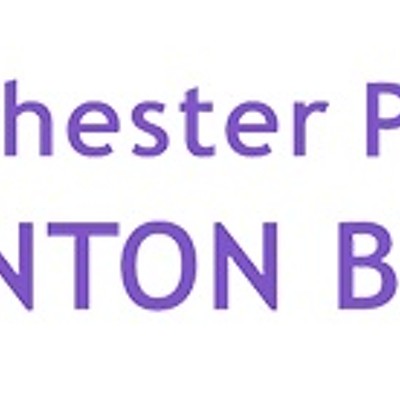Bob Duffy: a Q&A on crime
[
{
"name": "500x250 Ad",
"insertPoint": "5",
"component": "15667920",
"parentWrapperClass": "",
"requiredCountToDisplay": "1"
}
]
City: What specific steps will you take within the police department and the rest of the criminal justice system to reduce the level of crime?
Duffy: Well first of all, I would like to point to the successes we've had and our track record so far. Project Cease Fire and Project Exile work and have demonstrated measurable success. So I would like to continually expand those partnerships. I would love to create a sense of permanent partnerships with the state police and the sheriff's department.
But the biggest step I am taking is creating a countywide crime commission. It is not adding bureaucracy. It is bringing together law enforcement, social services, county, educational systems, and probation --- and really looking at data, research, planning and implementing --- really looking at it from a big-picture perspective, because crime includes so many different efforts, and police response is just one of many.
Next I will ensure that RPD specifically will increase their resources to be able to do two things: first, respond to 911 calls in a quick and timely manner, and two, add permanent walking beats, not only downtown but in neighborhoods, by foot and bike patrols. That level of presence is incredibly important.
What specific steps will you take in other areas to reduce crime?
First of all, education, economic development, and public safety are inextricably linked. You cannot fix one without the other. Having kids stay in school, having kids prepared to work and having them come out and have a job when they graduate will have an incredible impact on public safety.
And I would like to see a big increase two things: first, work-scholarship programs and job training; number two, bring wealth into the city. Keeping businesses here and drawing new businesses into the city. We have to create an incredibly broad economic-development base that will really create wealth and jobs.
I have a proposal for bringing key economic development and business leaders together to create a specific business plan for the city. It's about jobs and creating wealth in the city. And another project that is kind of a pet project with me is to find the funding streams and resources needed to recreate the level of summer jobs we once had. I've been on the street, and this summer more than ever we are seeing teenagers on the streets, hanging out doing nothing.
I grew up in Rochester, and I could take advantage of CETA jobs and federally funded work projects. People need to understand that we probably aren't going to see federal funds like that, but we need to find the funding to help get these kids summer jobs. This is a critical time for violence. It is summer, and this is the time when kids are there doing nothing and getting into trouble, and we have lost the financial viability to hire these teens.
I think we have to understand that economic development, education, and public safety are linked, but if there are no jobs for these kids during the summer or when they graduate, we're going to see more of what we're seeing right now.
And the Hillside Work Scholarship Program: perfect. Tutoring, mentoring, and employment, those three things, doubled the graduation rate from 31 percent to 61 percent, and 80 percent of those kids go on to college. Here's the challenge: We don't have enough kids going into that program.
It's as if there's this conveyor belt that kids are getting off and going to prison. We have to stop this right here. We need to fix the problem upstream. I don't have the research in front of me, but I would guess that three-quarters or more of the inmates at the MonroeCounty jail do not have a high-school diploma. They're dropouts and they're in there for burglary, larceny, drug dealing, and so on.
Do we need more police officers? If so, how many?
Well, I believe we need more, but it's hard to quantify how many. Couple of things I would look at: We need to expand the hiring process and cut down on the bureaucracy. We need to go from the current 18 months to two years from testing to hiring down to four months or less.
Next, what can we civilianize from the police department? You can not do that unilaterally. There are a lot of jobs currently being done by police officers that can be done by civilian employees, but that has to be negotiated [in the police-union contract].
Next, it's about evaluating where we are at fully staffed, accessing what more it takes to answer 911 calls quickly -- and I am going to say 50 for a starting point. But it is going to be expensive. I would say $70,000 per officer.
How will you pay for it?
First of all, I would look for redirecting some expenditure from other areas. Second, I would look for some very creative packages to see if there is a partnership we can create between the city, the county, and the private sector, because this is an investment that I think will pay dividends. Getting state funding for just the start up is not the answer because this program would go on year after year for at least a few years. If that doesn't happen, I have three other very specific packages. But I choose not to go into them right now.
Do we have enough information to abandon the new reorganization of the police department? If so, how should we organize the department?
We have to separate campaign rhetoric from the reality, and we have to analyze data and results of the reorganization and then see what those recommendations are for change. The reorganization has worked in so many ways, but there are clearly parts of it that have to be addressed. There are people inside and outside that are not happy with it, but we have to keep in mind that this is about change and change is not easy for some people.
How would you measure success in public safety?
I was chief from 1998 up to 2004.During that seven years, we cut homicide by 30 to 32 percent. That's success. We've been a model department throughout the state and in some cases in the country. [Looking at the success of New York City in reducing crime, there are two things to consider.] One is the incredible infusion of resources. That has been a cornerstone of their success; they will tell you that. Second, is the economy. That's why I have been saying we have to look at education, economic development, and public safety together. I am not saying the picture is rosy. I'm not saying that at all. But we have to get past the campaign rhetoric, and my decisions are going to be based on the data and the research from all three areas.









